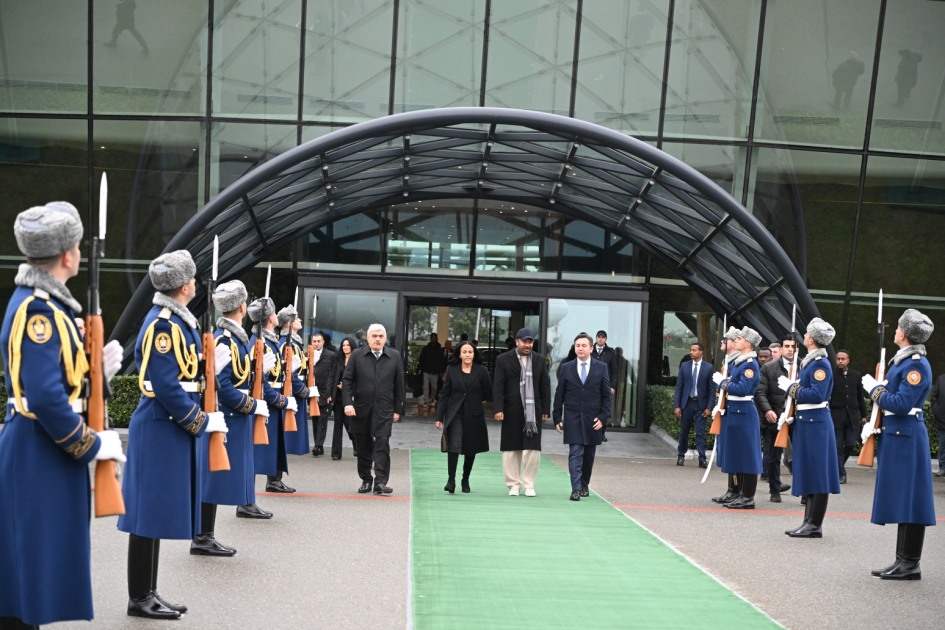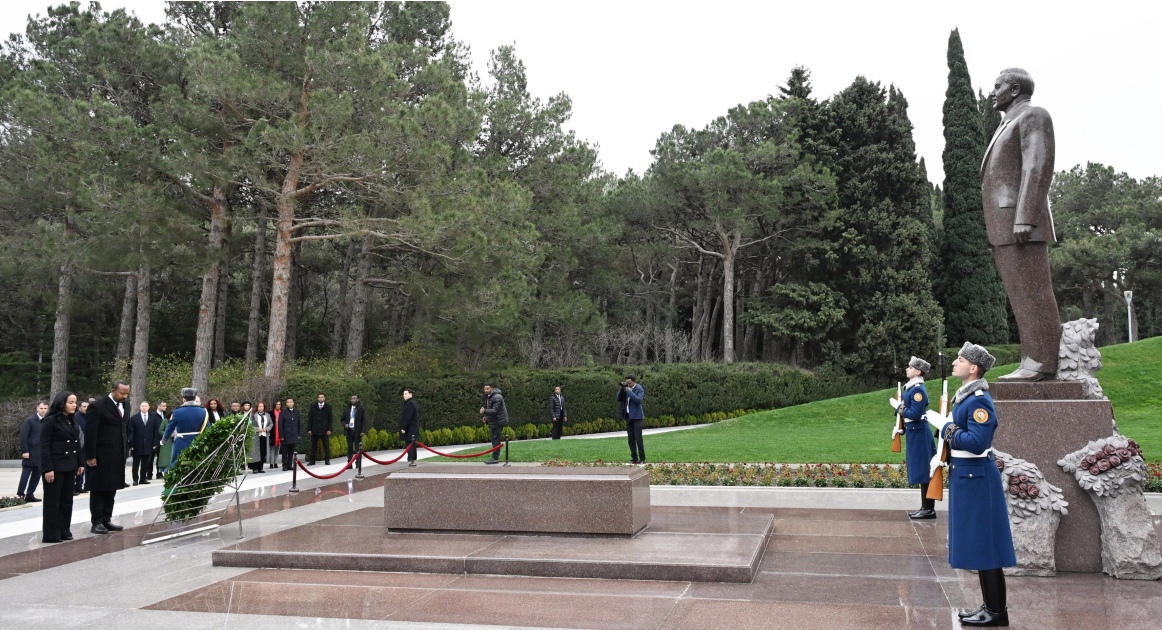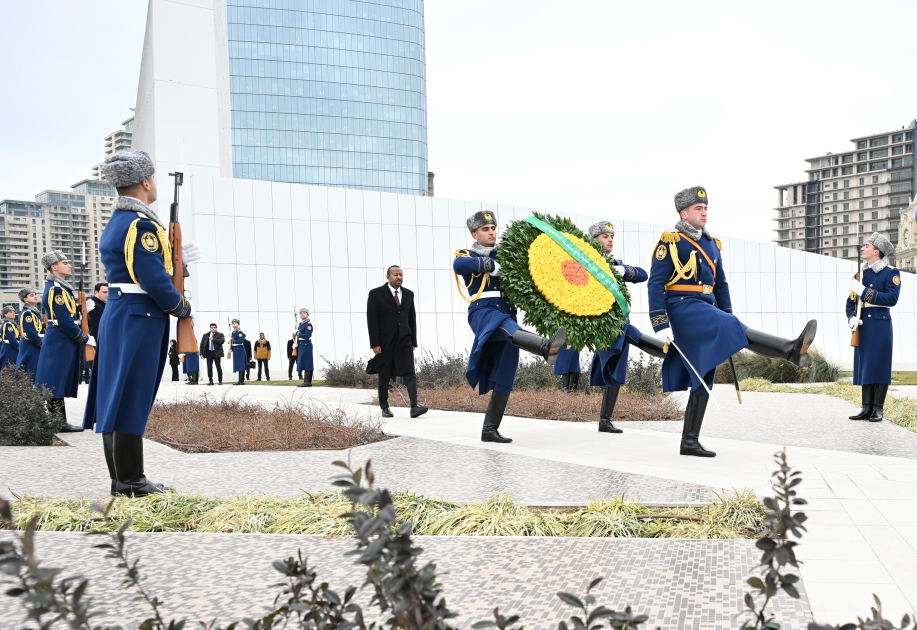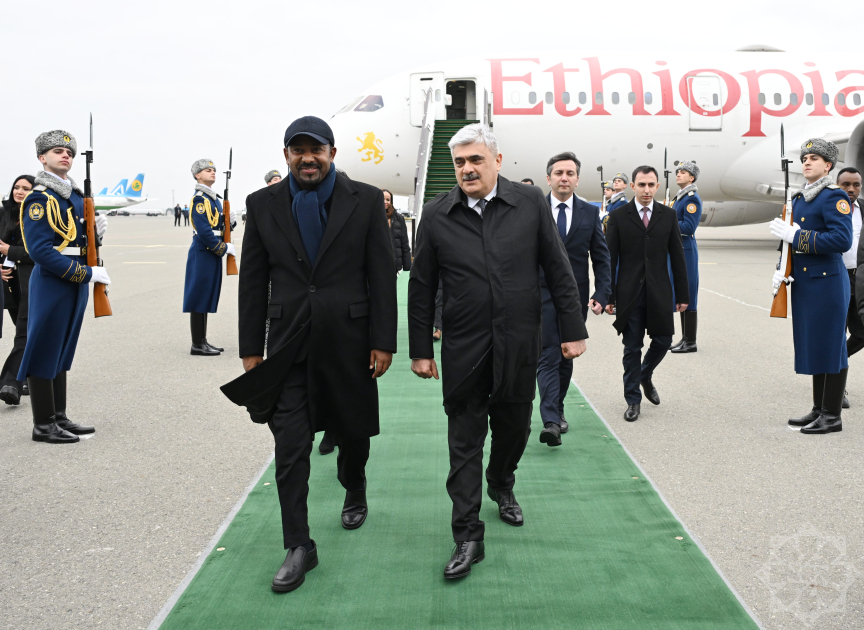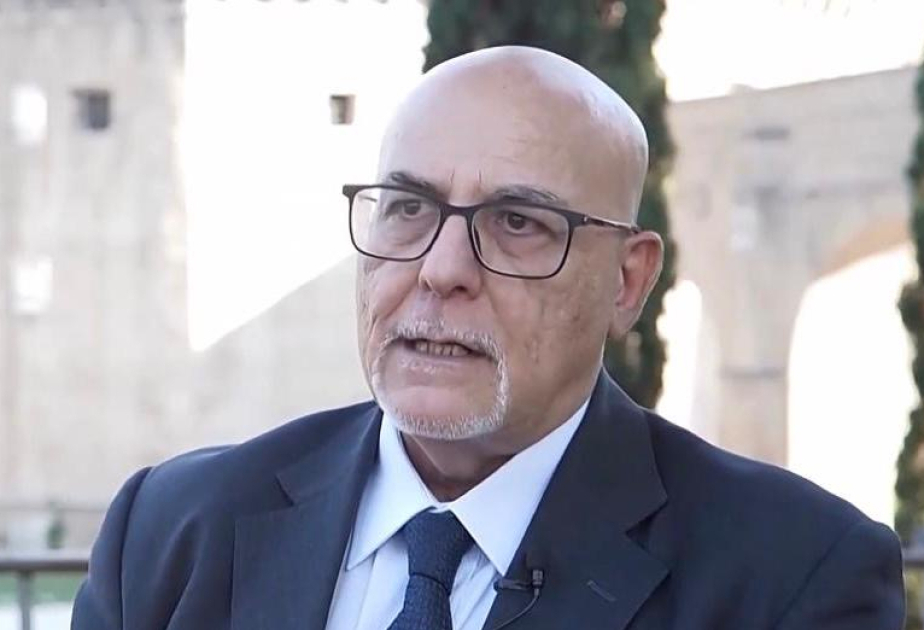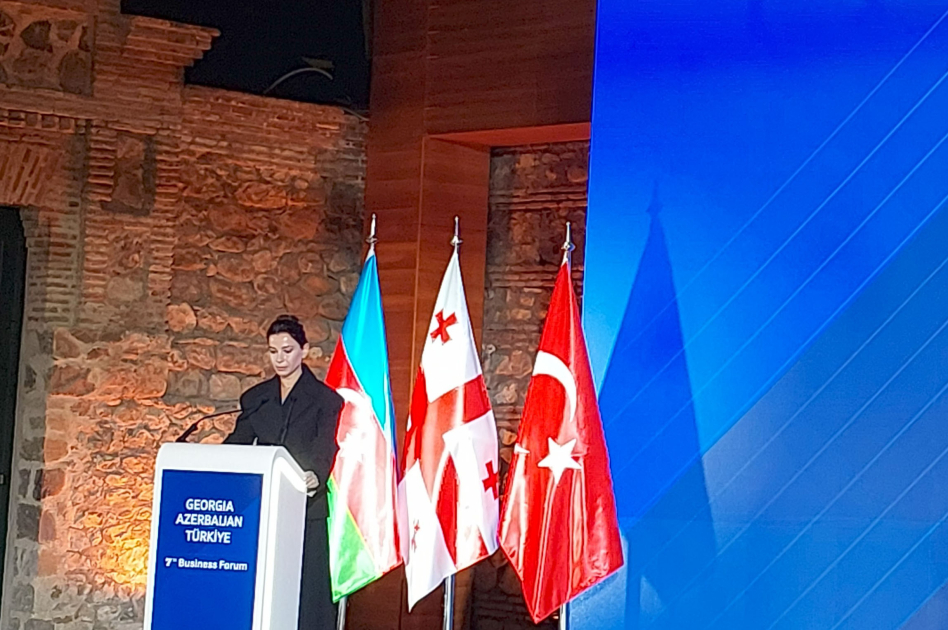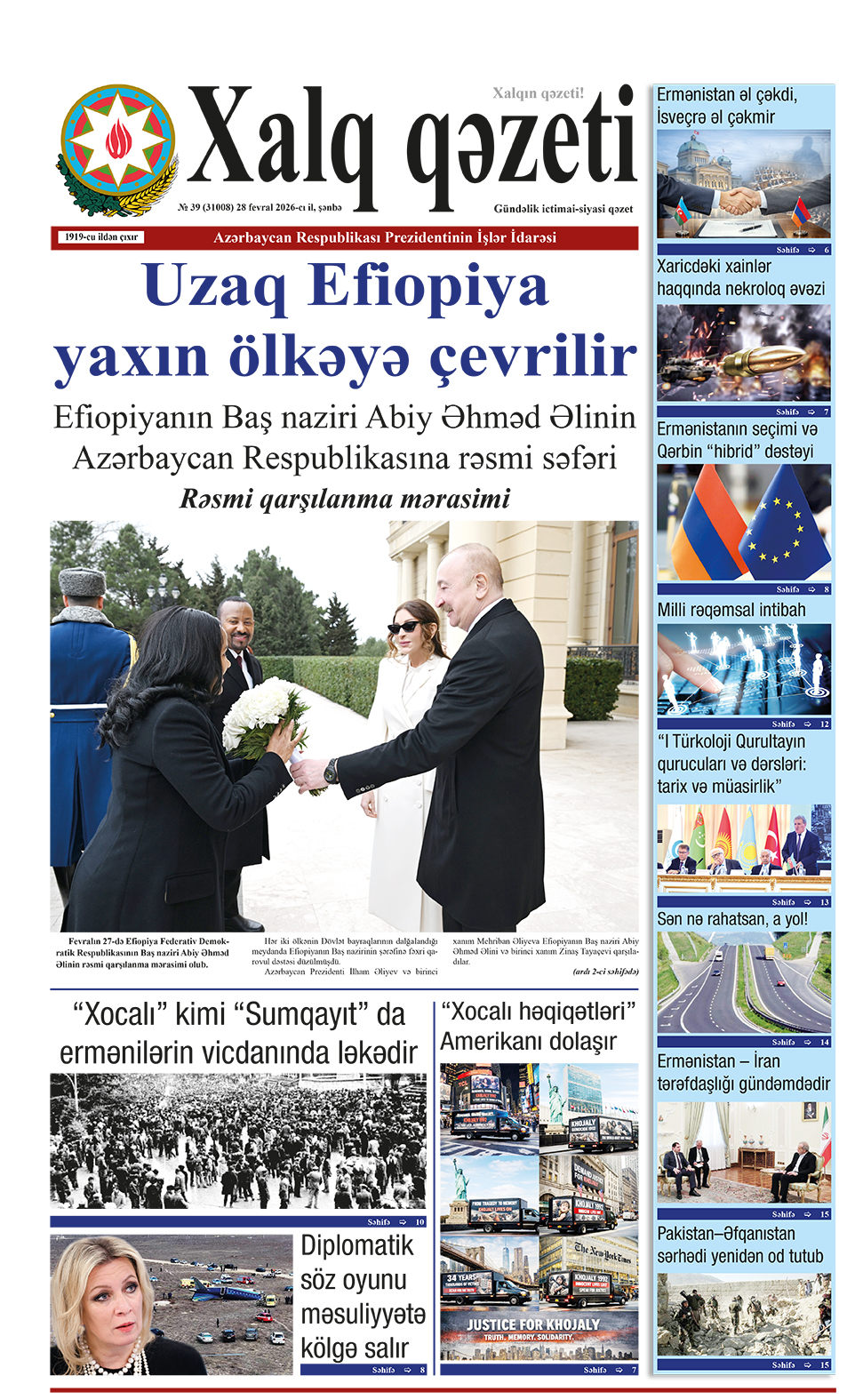(In the context of the saying "One nation, two states")
Modern democratic, legal and secular state-building in Azerbaijan, organization of civil society, return to national and moral values and development of science, education, and culture are eternally connected with the name of Heydar Aliyev.
Ilham Aliyev
President of the Republic of Azerbaijan
Article I
It all started in the Soviet era
The activity of the national leader Heydar Aliyev is a very valuable experience, historical, theoretical-political and philosophical chronicle from the point of view of the development of national statehood at the modern stage. There is no such moment of the great leader's time in politics that does not contain a deep historical, political, ideological and statehood moment. Therefore, the classification of Heydar Aliyev's activity as the Soviet period, the Nakhchivan stage and the modern period of independence has only a historical-chronic, theoretical-political and abstract philosophical nature. In reality, each of these stages is a fragment of a coherent, systematic and pre-strategically thought out single activity. Facts and past experience prove this thesis to be absolutely true. In this context, we can say that everything started from the Soviet era.
Soviet era: Heydar Aliyev's example of real leadership and informal leadership
There is no need to explain the philosophical, historical, social and ideological identity of the Soviets to anyone again. However, it would be useful to have a philosophical and political "measurement" of the content, method and realization possibilities of "management" and "leadership" in that period. The point is that it was a crime to talk about leadership in the USSR at that time. As the leader of the allied republics, it was a serious crime to look after the national interest and it had heavy consequences. All conditions of management were determined by the Center, and deviation from it was considered as treason. Leading the allied republic in such a complex, confusing and risky time required special political skill and willpower. The center even interfered in the personal life of the leaders of the republic, in the work of building a family. Against this background, it was not difficult to imagine what it would mean to take any other step in the republic.
In these realities of the Soviets, there was also a terrible intention regarding Azerbaijan. At the central level, a plan to either greatly weaken Azerbaijan as a republic or, if possible, to abolish it entirely, was working secretly. It had three signs.
First, Azerbaijan had a line to maximally limit the work of non-Azeris (read: mainly national-minded Turks) in important spheres such as management, control, legislation, security, and ensuring order. This line involves making various artificial excuses, setting traps, slandering people in various ways, putting them in the vortex of intrigues that have occurred at the household level, etc. methods were carried out.
Secondly, the high-authority administration and the security system were filled with Russian-minded people (Armenian, Jewish, and Christian-minded as part and parcel of it). They treated Azerbaijanis as enemies and harmed them at every opportunity. They psychologically, spiritually and physically broke the true lovers of Azerbaijan, instilled in them at least a sense of indifference to their homeland. One of his theses is "in general, Azerbaijanis are unworthy, incompetent, who do not know what the state is, bribe-takers, traders, market people, ignorant, radical religious, who do not understand what culture is." They spread this idea at every opportunity in the Azerbaijani society itself, and in its background, "the real man is a Russian, Armenian, Georgian, French, Persian, etc. they introduced the "what if" psychology. With this, they actually created the slogan "there is no reason to be proud of being Azerbaijani".
Thirdly, in the background of the first two forms of psychological influence, they secretly injected a more terrifying and dangerous line. The general principle of this line, as a whole, was related to the plans for the official partition of Azerbaijan for the second time (the first partition was formalized by the Treaty of Turkmenchay).
In fact, organizing cadres in the Azerbaijan SSR from those who are indifferent to the country, humiliating Azerbaijanis psychologically and legally, and other things, ultimately formed the idea that "such a country does not exist" and divided it among the neighbors (Russia, Armenia and Georgia) in order to realize the intention.
Its concrete and more terrible manifestation was when a group of people in the Center put forward a plan to drain the Caspian Sea and extract oil. It was quite terrible and the failure of the plan aimed directly at destroying Azerbaijan as a territory was due to the influence of honest Russian scientists and the death of Stalin. Russian scientists have proven that the drying up of the Caspian Sea will lead to the drying up of the Caspian coastal areas, and there will be no possibility to irrigate the lands of Azerbaijan. In return, they came up with the idea of creating an artificial lake in the middle of the republic by cutting the front of Kür. This was actually a violation of the territorial integrity of Northern Azerbaijan and creating a basis for giving the parts remaining on land to Russia, Armenia and Georgia.
What is the meaning of the combination of the strict control of the center and the total authoritarian, conjuncture, full centrist policy and the insidious plans against Azerbaijan? I think the answer to this question is clear. In other words, in reality, the people and the local leadership faced the serious risk of losing our Motherland, Azerbaijan. Preventing these two powerful waves of destructive politics required great genius, high logical intelligence, political will, and most importantly, great love for the Motherland! At the same time, it was necessary to win by carrying out the process continuously, because incompleteness was also defeat.
It was in such a fateful and life-and-death dilemma that Heydar Aliyev shouldered the heavy burden without hesitation. If it was not for the great leader's successful career in the security system and then in the political field, Azerbaijan might not exist now. Heydar Aliyev conducted the policy according to each stage in such a way that he overcame Moscow's resistance and implemented his plans. We can mention three aspects of them here.
The mechanism of its realization was related to the fact that the USSR sent young Azerbaijanis to various universities to study. As a result, thousands of Azerbaijani-spirited personnel came to the republic in a short period of time from a historical point of view. This step of the great leader completely limited the Center's plans to send a large number of Russian women to Azerbaijan in the name of work and reduced its social influence to a minimum. Now it is known that this is a great political and psychological contribution of Heydar Aliyev in the strategic aspect.
Thus, the Soviet era can be imagined as a stage that synthesized Heydar Aliyev's real leadership of the Azerbaijan SSR and becoming an informal people's leader. At that time, unshakable trust and confidence in Heydar Aliyev was formed in the hearts of the Azerbaijani people. This factor played a very serious role in the independence phase.
Return to Nakhchivan: the beginning of the difficult tests of the new leadership
Thus, Heydar Aliyev's real leadership of the Azerbaijan SSR and informal leadership of the people saved the country from destruction. At the same time, the activity during the Soviet period created the basis for Heydar Aliyev to become one of the real heads and leaders of the USSR. In the political-theoretical context, we are actually talking about a major transformation of leadership activity:
a Turkish leader was able to become a leader at the level of the All-Union thanks to his activities in one of the non-Slavic republics of the Union! This means a successful synthesis of leadership mission and scale (in the sense of academic Isa Habibbayli). However, this progress was prevented by biased forces at the Center. This event also coincided with the collapse of the USSR. That time was very confusing and risky. Moreover, Heydar Aliyev was ill. Those who made biased plans in the Kremlin were thinking of physically destroying the Great Leader. However, Heydar Aliyev deftly neutralized all the traps and returned to the Motherland in 1990. On July 22, 1990, the great leader was already in Nakhchivan.
There is a serious need for philosophical and political-theoretical investigation of this return in various aspects. Because Heydar Aliyev did not just physically return to his native land, the great politician's strategic goal was to protect and maintain Nakhchivan as a region of Azerbaijan, as well as to create its base in Nakhchivan for the realization of national state building on the entire scale of Azerbaijan! In this sense, the Nakhchivan stage of the great leader's activity is philosophically and politically the initial stage of independent Azerbaijan statehood in the modern era and in many aspects the initial embodiment of that process.
The opinions expressed by President Ilham Aliyev in his evaluation of that period also confirm this thesis. Ilham Aliyev stated in his speech at the solemn ceremony dedicated to the 90th anniversary of the Nakhchivan Autonomous Republic: "It was in the early 1990s that the fate of Nakhchivan was decided. If Heydar Aliyev had not been in Nakhchivan in those years and the people of Nakhchivan had not united closely around the great leader, the fate of Nakhchivan could have been very difficult... The Azerbaijani leadership at that time had a stepfather attitude towards Nakhchivan... They did very ugly things to destabilize and aggravate the situation in Nakhchivan. However, the people of Nakhchivan, as always, showed their wisdom and united like a fist around the great leader and gave a solid response to the Armenian invasion, put them in their place, and also raised their voices of protest to the central government of Azerbaijan and said that that insidious scenario will not happen in Nakhchivan.
Academician Isa Habibbeyli emphasized in that context: "The Nakhchivan period of the life and activities of Heydar Aliyev, a prominent statesman, is of special importance in the destiny of Azerbaijan's state independence." The great leader "...paid special attention to the realization of real security for the thought of Azerbaijaniism, and also paid great attention to the development of the Nakhchivan Autonomous Republic at the level of national tasks and protected the interests of the country."
The national leader "... as the Chairman of the Supreme Assembly of the Nakhchivan Autonomous Republic, united the people around him, strengthened relations with the regional states, and skillfully led the resistance movement against the aggression of the great powers" (I. Habibbeyli. Heydar Aliyev's path: realities of Nakhchivan // "Azerbaijan" newspaper , April 16, 2014).
(to be continued)
Fuzuli GURBANOV,
Analyst of XQ, doctor of philosophy






